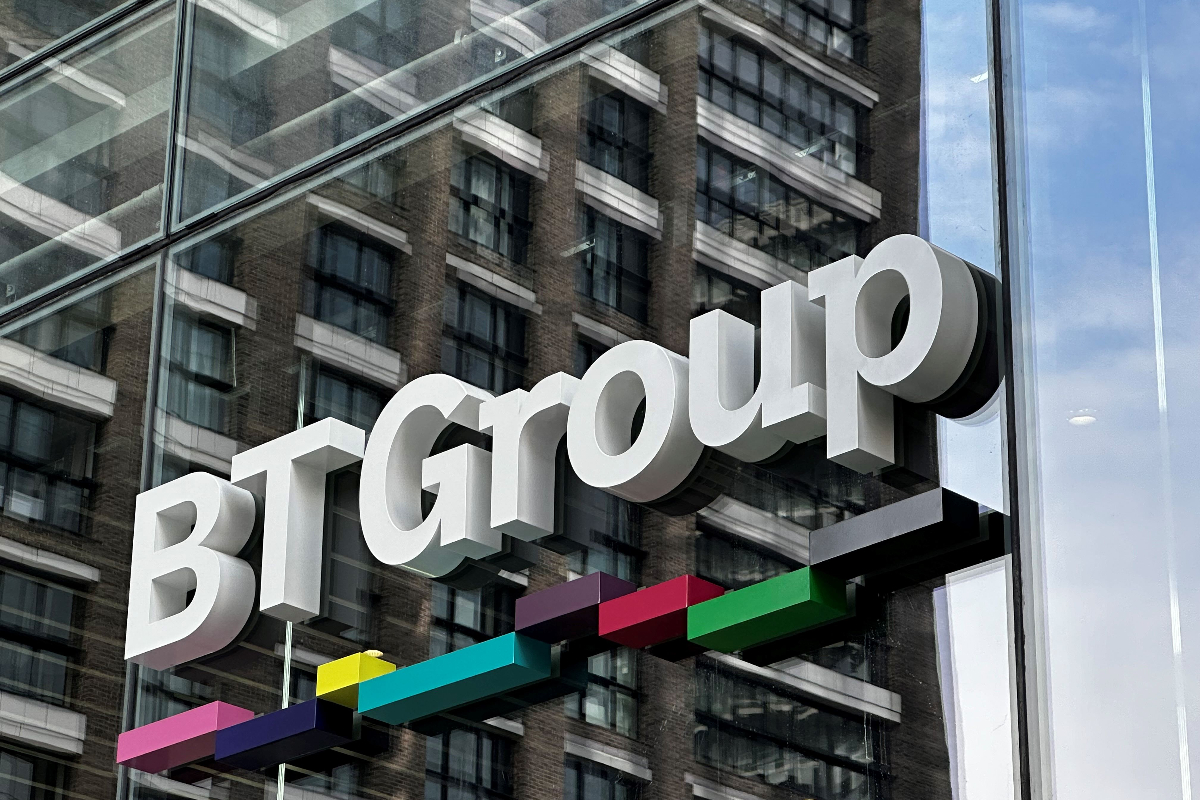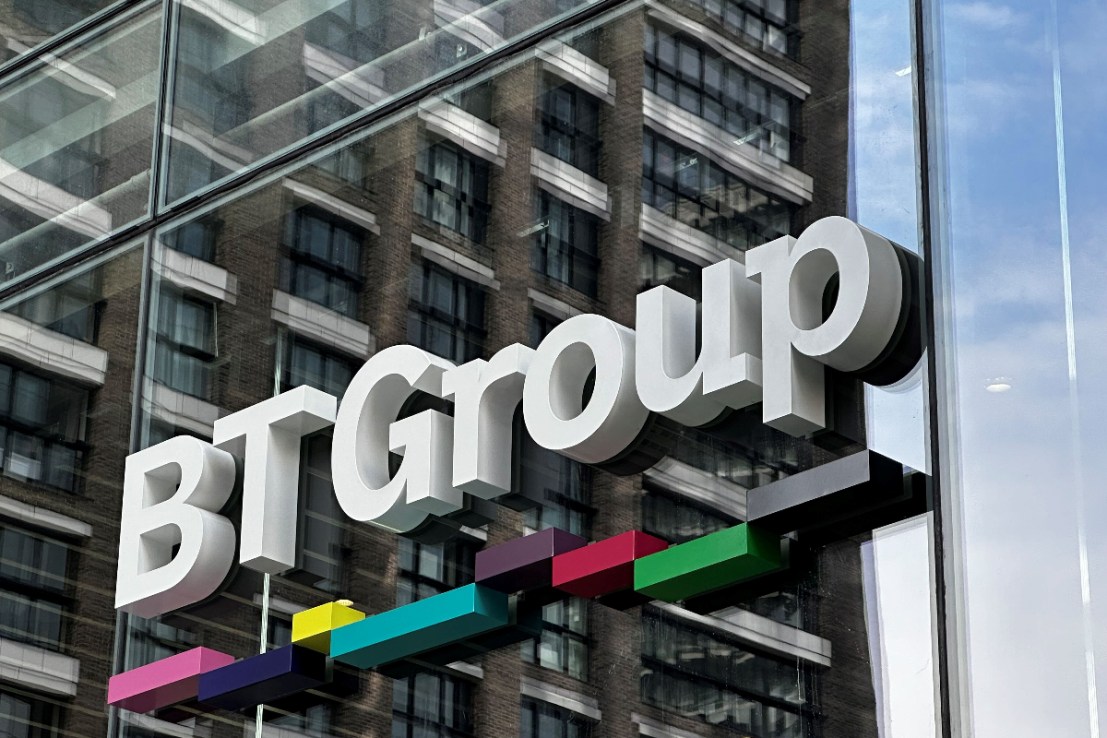BT shares surge as traders bet giant has turned a corner
BT Group's profit after tax plummeted 55 per cent after the British telecoms firm wrote down a significant chunk of its business.


BT shares shot up this morning despite an almost half a billion writedown of the value of its business – with traders betting the firm is finally about to reap the rewards of an expensive technological rollout.
The company has ramped up infrastructure spending on the latest digital tech, including fibre optic kit, which has hit the bottom line over recent years.
However boss Alison Kirkby said the company was now able to put that increased investment in the rear-view mirror – and would now reap the rewards.
The optimistic sent shares upward despite a mixed bag of full-year results.
While revenue for the group remained stable, at £20.8bn compared to £20.7bn in the year before, profit before tax fell 31 per cent.
In BT Group’s full-year results to 31 March, it included a significant non-cash impairment of goodwill, which, along with increased depreciation, amortisation and pension interest expense, pushed down profit.
That impairment was a near £500m writedown in the value of the business due to declined profitability in recent years.
Capital expenditure for the group fell three per cent to £4.9bn, due to reduced costs in BT’s push for to connect fibre optic directly to homes, with the programme adding a record 78,000 new customers a week to its network.
The group reported strong Openreach customer demand for fibre optic, with net adds of 397,000 in the last quarter, and total premises connected now over 4.8m.
BT’s share price is down almost 25 per cent in the past year as the cost of building new fibre and 5G networks has continued to drag on the business.
The firm is a current favourite of telco short-sellers, but BT shares reacted positively to the news when the market opened today with the stock popping eight per cent in early deals.
The company is aiming to switch off its traditional telephone network by 2025, instead shifting to digital and focusing on building 5G networks across the nation.
BT chief executive Allison Kirkby said: “Having passed peak capex on our full fibre broadband rollout and achieved our £3bn cost and service transformation programme a year ahead of schedule, we’ve now reached the inflection point on our long-term strategy.”
Kirkby noted that the company had also increased its dividend for the year by 3.9 per cent, bumping it up to eight pence per share.
“As we move into the next phase of BT Group’s transformation, we are sharpening our focus to be better for our customers and the country, by accelerating the modernisation of our operations, and by exploring options to optimise our global business,” the CEO added. “This will create a simpler BT Group, fully focused on connecting the UK, and well positioned to generate significant growth for all our stakeholders.”
Matt Britzman, equity analyst at Hargreaves Lansdown, said the business was growing “slowly” but there were “clear signs of progress” in the results.
“Costs associated with the fibre buildout look to be at their peak, and that’s vitally important as telecom giants continue to be punished for investing heavily in the future,” he explained.
“BT’s future relies heavily on getting past the peak fibre buildout phase, and to its credit, progress looks good. The real question mark for the sector at large is whether all that spending is going to generate enough top-line growth to materially improve performance. That said, BT does look like one of the better-placed names, especially with a great asset like Openreach on the books,” Britzman summarised.
Meanwhile, Matt Dorset, equity research analyst at Quilter Cheviot, said management’s “decision to hike the dividend signalled “confidence”, and it offset concerns the business would cut the payout. With a dividend yield of around 6.9 per cent now on offer, “The valuation remains very attractive and is significantly below the sector average and below BT’s longer-term average,” Dorset added.



